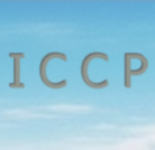Oral session:
| S7.1 Airborne Radar and Lidar Observations of Cloud-Environment Interactions, Entrainment, and Drizzle Formation in High CDNC Convective Cloud Complexes David Leon*1, Jeffrey French1 1University of Wyoming, USA, 2University of Illinois at Urbana-Champaign, USA, 3National Center for Atmospheric Science, University of Leeds, UK (video; position 0:00) |
| S7.2 High-resolution Simulations of Cumulus Entrainment Sonia Lasher-Trapp*1, David Leon2, Daniel Moser1, Jeff French2, Alan Blyth3 1University of Illinois, USA, 2University of Wyoming, USA, 3NCAS, School of Earth and Environment, Univ. of Leeds, UK (video; position 15:43) |
| S7.3 Entrainment and Dilution Rates of Successive Thermals in a Simulated Cumulus Congestus Daniel Moser*, Sonia Lasher-Trapp University of Illinois in Urbana-Champaign, USA (video; position 32:57) |
| S7.4 Analysis of homogeneous and inhomogeneous mixing in liquid clouds Alexei Korolev*1, Alex Khain2, Mark Pinsky2, Jeffrey French3 1Environment and Clinate Change Canada, Canada, 2the Hebrew University of Jerusalem, Israel, 3University of Wyoming, USA (video; position 0:00) |
| S7.6 Examination of Entrainment-Mixing Mechanisms in Observed and Simulated Cumuli Chunsong Lu*1,2, Yangang Liu2, Seong Soo Yum3 1Nanjing University of Information Science and Technology, China, 2Brookhaven National Laboratory, USA, 3Yonsei University, Republic of Korea (video; position 15:00) |
| S7.6 Investigation of DSD variations in a developing monsoon cloud: Analysis from numerical simulation and field observation Bipin Kumar*, Sudarsan Bera, Thara Prabhakaran Indian Institute of Tropical Meteorology, Pune, India (video; position 30:00) |
| S7.7 Impact of cloud microphysics on the phase composition of a tropical mesoscale convective system Charmaine Franklin*1, Alain Protat2 1CSIRO, Australia, 2Bureau pf Meteorology, Australia (video; position 0:00) |
| S7.8 The Effects of Entrainment and Mixing on Droplet Size Distributions: Bridging the DNS-LES Gap Steven Krueger University of Utah, USA (video; position 15:00) |
| S7.9 Impact of Aerosol Amount on Drop Environments and Mixing Characteristics of Warm Continental Cumulus During GoMACCS Jennifer Griswold*1, Patrick Chuang2 1University of Hawaii at Manoa, USA, 2University of California – Santa Cruz, USA (video; position 31:00) |
| S7.10 Exploring the Interaction Web of Aerosol-Cloud-Precipitation System Yangang Liu*1, Jingyi Chen2, Chunsong Lu3,1, Shinjae Yoo1, Yiran Peng4, Satoshi Endo1, Wuyin Lin1 1Brookhaven National Lab, USA, 2Stony Brook University, USA, 3Nanjing University of Information and Technology, China, 4Tsinghua University, China (video; position 0:00) |
| S7.11 The role of organic compounds in cloud formation: Relative importance of entrainment, co-condensation and particle-phase properties Samuel Lowe*1,2, Daniel Partridge1,2, David Topping3,4, Ilona Riipinen1,2 1Department of Environmental Science and Analytical Chemistry, Stockholm University, Sweden, 2Bert Bolin Centre for Climate Research, Stockholm University, Sweden, 3School of Earth Atmospheric and Environmental Science, University of Manchester, UK, 4National Centre for Atmospheric Science (NCAS), University of Manchester, UK (video; position 15:00) |
| S7.12 Impacts of entrainment on the microphysical properties of stratocumulus clouds observed during the Marine Stratus/Stratocumulus Experiment (MASE-II) Lisa Nyberg*, Daniel Partridge, Johan Ström Stockholm University, Sweden (video; position 30:00) |
| S7.13 Evaporative Cooling and Entrainment in POST Stratocumulus Hermann Gerber*1, Szymon P. Malinowski2, Haflidi Jonsson3 1Gerber Scientific, Inc., USA, 2University of Warsaw, Poland, 3Naval Post-Graduate School, USA (video; position 0:00) |
| S7.14 Anisotropic turbulence within a capping inversion: a missing piece in the puzzle of stratocumulus entrainment Szymon Malinowski*1, Marta Kopeć1, Hermann Gerber2, Djamal Khelif3, Imai Jen-La Plante1, Yongfeng Ma1, Katarzyna Karpińska1, Katarzyna Nurowska1, Jesper Pedersen1, Wojciech Kumala1 1University of Warsaw, Faculty of Physics, Institute of Geophysics, Poland, 2Gerber Scientific Inc., USA, 3Department of Mechanical and Aerospace Engineering, University of California, USA (video; position 15:00) |
Poster session:
| P7.1 Mixing at the boundary between a turbulent cloud and non-turbulent environment. Paul Goetzfried*1, Bipin Kumar2, Raymond Shaw3, Joerg Schumacher1 1Technische Universität Ilmenau, Germany, 2Indian Institute of Tropical Meteorology, India, 3Michigan Technological University, USA |
| P7.2 Theoretical investigation of mixing in warm clouds. Homogeneous mixing Mark Pinsky*1, Alexander Khain1, Alexei Korolev2 1The Hebrew University of Jerusalem, Israel, 2Environment Canada, Canada |
| P7.3 Theoretical analysis of mixing in liquid clouds: Inhomogeneous mixing Alexander Khain*1, Mark Pinsky1, Alexey Korolev2 1The Hebrew University of Jerusalem, Israel, 2The Hebrew University of Jerusalem, Israel, 3Environment Canada, Canada |
| P7.4 Examination of the bimodal droplet spectra observed during COPE Jason Sulskis, Jeff French*, David Leon, Robert Jackson University of Wyoming, USA |
| P7.5 The entrainment velocity in stratocumulus driven by radiative and evaporative cooling Alberto de Lozar*, Juan Pedro Mellado Max Planck Institute for Meteorology, Germany |
| P7.6 Wind-shear effects in stratocumulus-top entrainment Juan Pedro Mellado*, Bernhard Schulz, Alberto de Lozar Max Planck Institute for Meteorology, Germany |
| P7.7 A simple model for entrainment and mixing in growing deep cumulus updrafts Hugh Morrison NCAR, USA |
| P7.8 Are LES model simulated cloud microphysical relationships consistent with in-situ measured ones for stratocumulus clouds? Kyoung Ock Choi*, Seong Soo Yum Yonsei University, Republic of Korea |
| P7.9 Characteristics of cloud microphysical relationships in the clouds measured during the GoAmazon project and their implication on entrainment and mixing processes Jae Min Yeom*1, Seong Soo Yum1, Fan Mei2, Beat Schmid2, Jennifer Comstock2, Luiz Machado3, Micael Cecchini3 1Yonsei University, Republic of Korea, 2Pacific Northwest National Laboratory, USA, 3Instituto Nacional de Pesquisas Espaciais (INPE), Centro de Previsão de Tempo e Estudos Climáticos (CPTEC), Brazil |
| P7.10 Local entrainment rates and anisotropy of entraining structures in laboratory analogues of cumulus and stratocumulus clouds. Anna Górska*1,2, Szymon Malinowski1,3, Jacob Fugal2,3, Wojciech Kumala1 1University of Warsaw, Faculty of Physics, Institute of Geophysics, Poland, 2Max Planck Institute for Chemistry, Germany, 3Institute for Atmospheric Physics, Johannes Gutenberg University of Mainz, Germany |
| P7.11 Effect of Entrainment-Mixing on Cloud Microphysics: A Study using In-situ Observations Sudarsan Bera1, Thara Prabhakaran*1, Wojciech Grabowski2 1Indian Institute of Tropical Meteorology, India, 2National Centre for Atmospheric Research, USA |
| P7.12 Large-eddy simulation of the stratocumulus-topped boundary layer: a study of entrainment and anisotropic cloud-top turbulence Jesper G. Pedersen*1, Szymon P. Malinowski1, Wojciech W. Grabowski2 1University of Warsaw, Poland, 2National Center for Atmospheric Research, USA |
| P7.13 The role of updraft merging in the development of deep convection Ian Glenn, Steven Krueger* University of Utah, USA |
